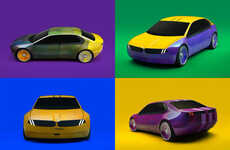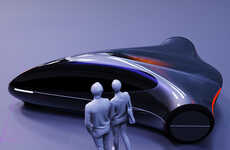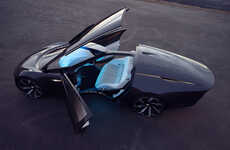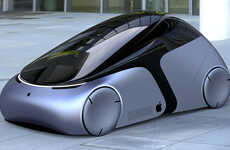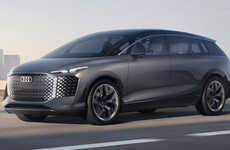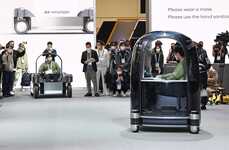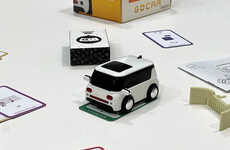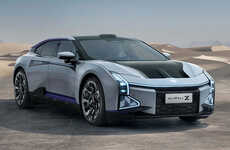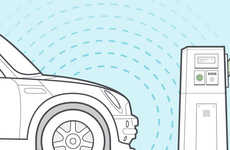
Siemens Electric Cars Could Function as Computers on Wheels
Rahul Kalvapalle — July 28, 2014 — Autos
Siemens electric cars of the future could perform as 'rolling computers' controlled by centralized computing architecture. This vision was borne out of the Siemens RACE (Robust and Reliable Automotive Computing Environment for Future eCars) project. These cars could offer functions such as electrical braking using a plug-and-play process similar to that used in regular computers. New software functions and updates could be sent to vehicles as is currently done with smartphones.
These Siemens electric cars will provide a programming interface which offers access to vehicle sensors (such as cameras, the steering wheel and braking pedals) and actuators (such as the power steering motor and braking system).
The technology will allow for increased customization and will reduce development and integration times. New features can be added post-purchase to increase the car's performance and lengthen its life cycle.
These Siemens electric cars will provide a programming interface which offers access to vehicle sensors (such as cameras, the steering wheel and braking pedals) and actuators (such as the power steering motor and braking system).
The technology will allow for increased customization and will reduce development and integration times. New features can be added post-purchase to increase the car's performance and lengthen its life cycle.
Trend Themes
1. Centralized Computing Architecture - Siemens electric cars could leverage centralized computing architecture to function as 'rolling computers', opening up opportunities for seamless software updates and increased customization.
2. Plug-and-play Electrical Braking - Siemens electric cars could introduce plug-and-play electrical braking systems similar to those used in regular computers, offering potential for easier maintenance and technological advancements.
3. Post-purchase Feature Upgrades - Siemens electric cars could enable post-purchase feature additions and software updates similar to smartphones, fostering opportunities to enhance performance and extend the car's life cycle.
Industry Implications
1. Automotive - The automotive industry can explore centralized computing architecture and plug-and-play systems to develop advanced electric vehicles with increased customization and ease of maintenance.
2. Software Development - The software development industry can take advantage of Siemens' programming interface to create innovative software functions and updates specifically tailored for Siemens electric cars.
3. Consumer Electronics - The consumer electronics industry can collaborate with Siemens to develop cutting-edge features and seamless integration between smartphones and Siemens electric cars, enhancing user experience and convenience.
4.1
Score
Popularity
Activity
Freshness

